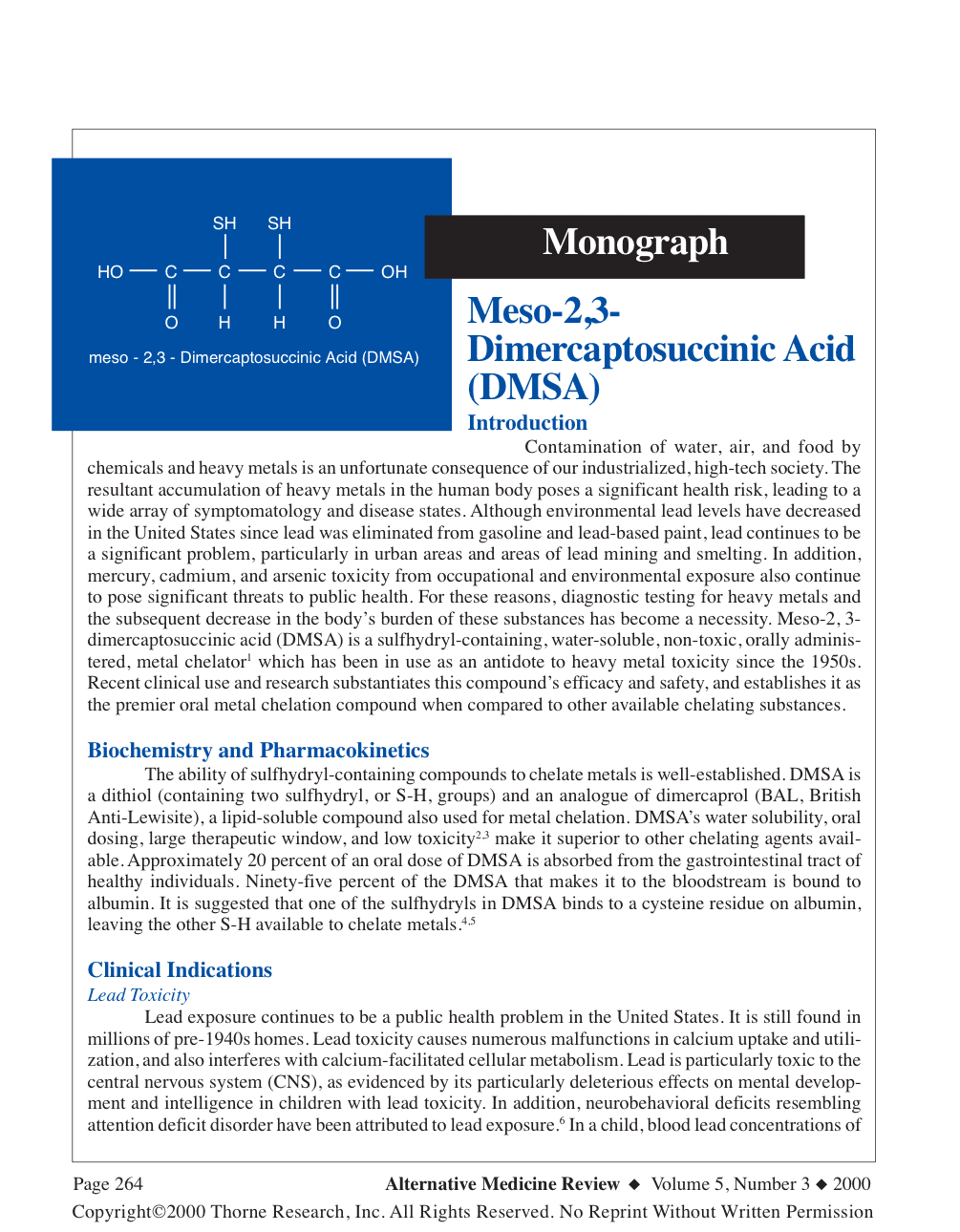Abstract
Contamination of water, air, and food by chemicals and heavy metals is an unfortunate consequence of our industrialized, high-tech society. The resultant accumulation of heavy metals in the human body poses a significant health risk, leading to a wide array of symptomatology and disease states. Although environmental lead levels have decreased in the United States since lead was eliminated from gasoline and lead-based paint, lead continues to be a significant problem, particularly in urban areas and areas of lead mining and smelting. In addition, mercury, cadmium, and arsenic toxicity from occupational and environmental exposure also continue to pose significant threats to public health. For these reasons, diagnostic testing for heavy metals and the subsequent decrease in the body’s burden of these substances has become a necessity. Meso-2, 3dimercaptosuccinic acid (DMSA) is a sulfhydryl-containing, water-soluble, non-toxic, orally administered, metal chelator1 which has been in use as an antidote to heavy metal toxicity since the 1950s. Recent clinical use and research substantiates this compound’s efficacy and safety, and establishes it as the premier oral metal chelation compound when compared to other available chelating substances.

